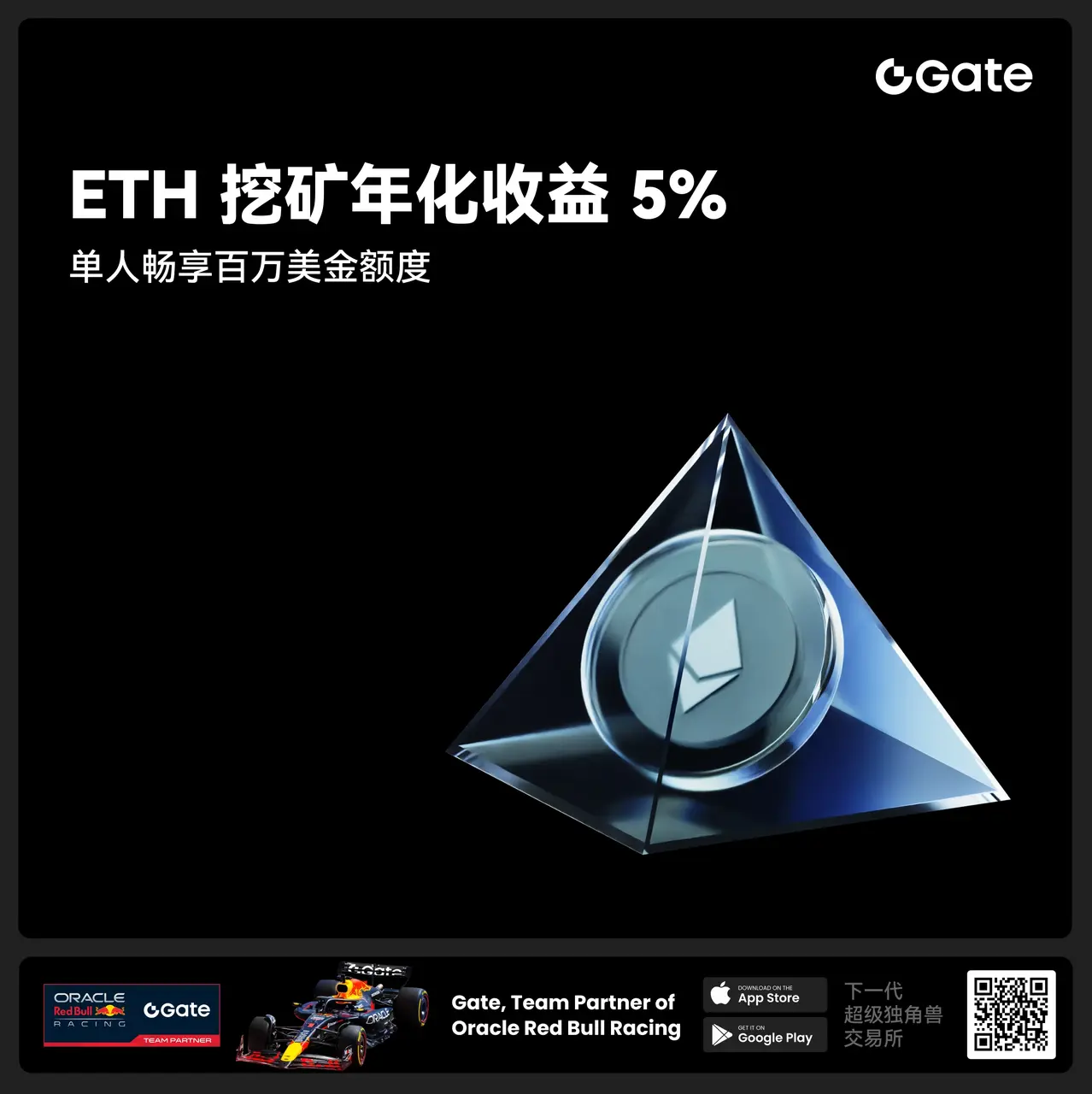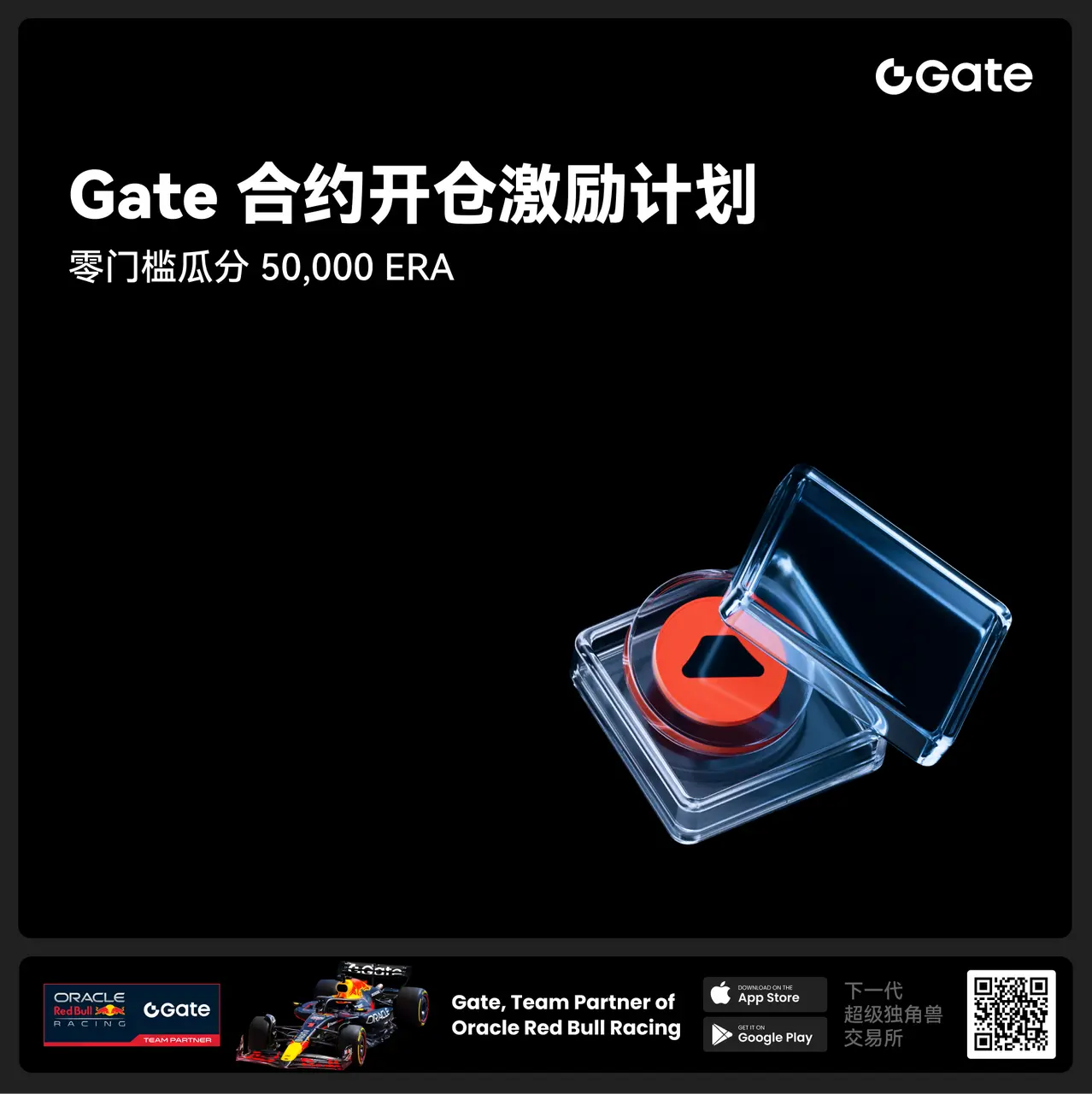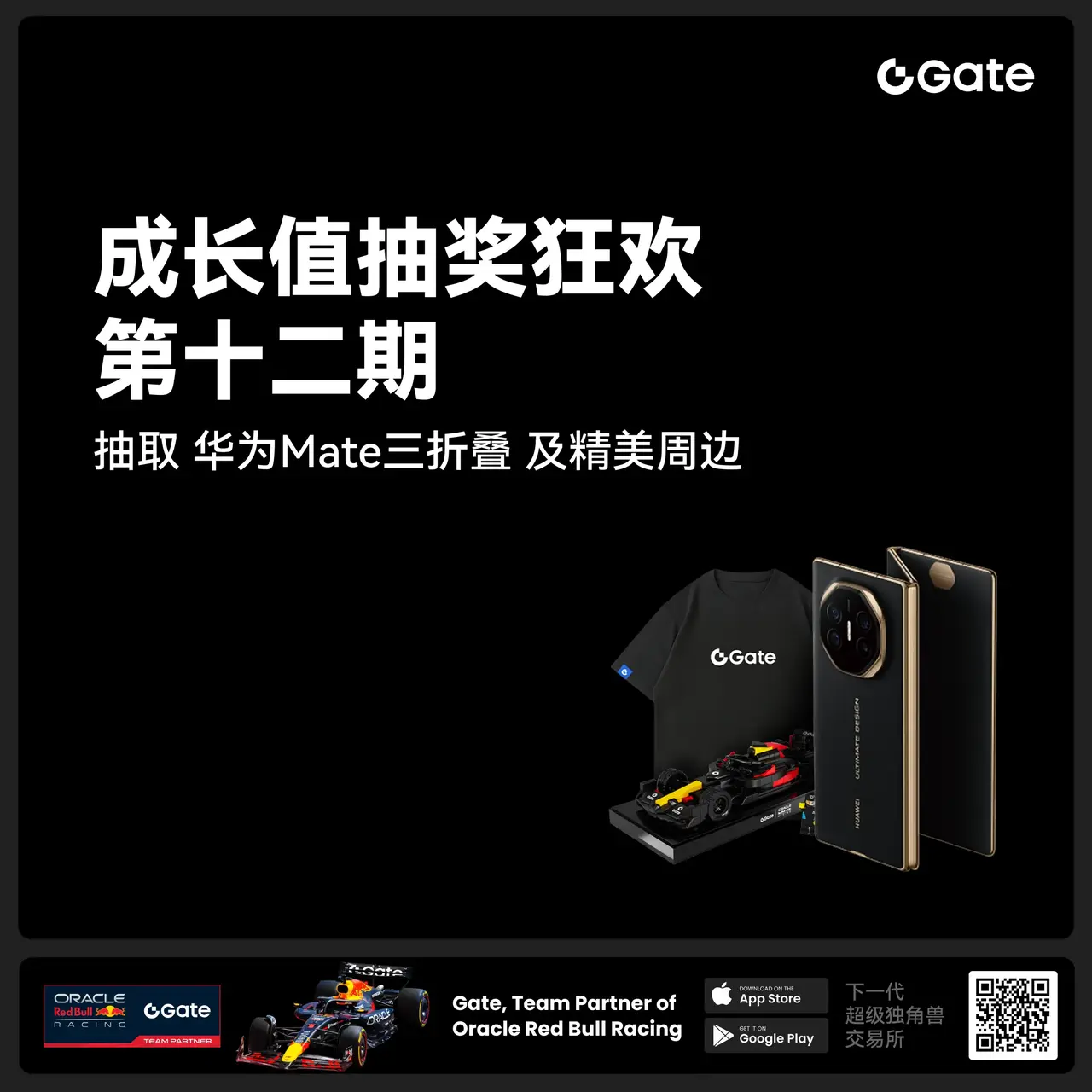- 話題1/3
22956 熱度
39667 熱度
2840 熱度
405 熱度
690 熱度
- 置頂
- Gate 鏈上賺幣:ETH 挖礦限時高收益!
✅ 年化收益近 5% + 額外獎勵單人額度 1000 ETH
💎 最低 0.00000001 ETH 起投,無贖回期,隨存隨取!
立即上車,穩賺鏈上收益:https://www.gate.com/staking/ETH
- Gate 合約開倉激勵計劃火熱上線!零門檻瓜分 50,000 ERA
開倉即有獎,交易越多獎勵越多!
新用戶享 20% 加成!
立即參與:https://www.gate.com/campaigns/1692?pid=X&ch=NGhnNGTf
活動詳情:https://www.gate.com/announcements/article/46429
#Gate # #合约交易 # #ERA#
- 👀 家人們,最近你們都攢了多少 Alpha 積分啦?
空投領到了沒?沒搶到也別急,廣場給你整點額外福利!
🎁 曬出你的 Alpha 收益,咱們就送你$200U代幣盲盒獎勵!
🥇 積分最高曬圖用戶 1 名 → $100 代幣盲盒
✨ 積分榜前五優質分享者 5 名 → 各得 $20 代幣盲盒
📍【怎麼玩】
1️⃣ 帶上話題 #晒出我的Alpha积分收益# 發廣場貼
2️⃣ 曬 Alpha 積分截圖 + 一句話總結:“我靠 Gate Alpha 賺了 ____,真的香!”
👉 還可以分享你的攢分技巧、兌換經驗、積分玩法,越乾貨越容易中獎!
📆【活動時間】
8月4日 18:00 - 8月10日 24:00 (UTC+8)
- 🎉 #CandyDrop合约挑战# 正式開啓!參與即可瓜分 6 BTC 豪華獎池!
📢 在 Gate 廣場帶話題發布你的合約體驗
🎁 優質貼文用戶瓜分$500 合約體驗金券,20位名額等你上榜!
📅 活動時間:2025 年 8 月 1 日 15:00 - 8 月 15 日 19:00 (UTC+8)
👉 活動連結:https://www.gate.com/candy-drop/detail/BTC-98
敢合約,敢盈利
- 🎉 攢成長值,抽華爲Mate三折疊!廣場第 1️⃣ 2️⃣ 期夏季成長值抽獎大狂歡開啓!
總獎池超 $10,000+,華爲Mate三折疊手機、F1紅牛賽車模型、Gate限量週邊、熱門代幣等你來抽!
立即抽獎 👉 https://www.gate.com/activities/pointprize?now_period=12
如何快速賺成長值?
1️⃣ 進入【廣場】,點擊頭像旁標識進入【社區中心】
2️⃣ 完成發帖、評論、點讚、發言等日常任務,成長值拿不停
100%有獎,抽到賺到,大獎等你抱走,趕緊試試手氣!
截止於 8月9日 24:00 (UTC+8)
詳情: https://www.gate.com/announcements/article/46384
#成长值抽奖12期开启#
Digital Yuan Will Revolutionize Chinese Retail Payments – Central Bank _
Per Yicai, Mu Changchun, Head of the Digital Currency Research Institute at the People’s Bank of China (PBoC), made the comments at the China International Financial Annual Forum this week.
Mu said it would be important to ensure that the digital yuan was accepted “in all retail payment scenarios” in Mainland China.
He also called on the PBoC’s banking and e-pay provider partners to streamline their QR code technical protocols.
At present, wallets are hosted by the PBoC or a number of mainly state-run banks.
The private-sector e-pay powerhouses WeChat Pay and Alipay have also added e-CNY functionality to their apps.
But all of these partners have thus far sought to integrate e-CNY payment options with their own conventional pay interfaces – rather than with one another’s offerings.
This fact, Mu suggested, means that merchants can face IT-related adoption issues with their POS devices.
The South China Morning Post quoted Andrew Fei, a partner at the Hong Kong law firm King & Wood Mallesons, as explaining:
China’s Digital Yuan: New Adoption Drive?
Mu added that banking and e-pay partners also needed to perform a series of upgrades to help drive further CBDC adoption efforts in the retail payments sector.
But analysts have claimed that Mu’s comments were actually aimed at retailers, not partner financial institutions.
Jie Hu, a Professor at the Shanghai Jiao Tong University’s Advanced Institute of Finance, opined:
But Mu’s wider goal is likely a radical reduction in China’s dependence on cash, or even a total elimination of analog forms of currency.
He said:
The “digital economy” has become a buzzword in Chinese political circles in recent years, and the PBoC is determined to lead the world in CBDC and “cashless society” drives.
Other Asian nations, such as nearby South Korea, have also launched IT-powered “cashless society” drives of their own.
The state-run media outlet Xinhua last month published an interview with Kent Matthews, a Professor of Banking and Finance at the UK’s Cardiff University.
In the interview, Matthews stated that the proportion of cash in terms of the total amount of yuan in circulation had “dropped to 3.7%” and “is continuing to fall.”
Matthews said that China was “on track to becoming the world’s top country for cash-free transactions,” although he claimed it would “be impossible for any government to legislate cash away.”
Mu further claimed that existing inter-bank payment and clearing s can still “meet the needs of China’s economic development.”
He said that there was “no need to replace” existing networks with the central bank’s digital currency .
The PBoC chief claimed that conventional and CBDC networks “can be fully interoperable and seamlessly connected.”
Mu concluded that CBDC smart contracts could be used to boost the efficiency of Chinese wholesale payments.